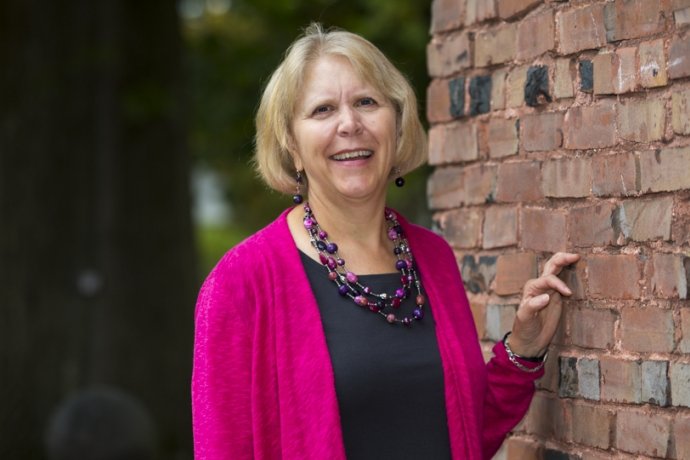M. Darby Dyar
- Kennedy-Schelkunoff Professor of Astronomy
- Chair of Astronomy
- On sabbatical spring 2024

The primary goal of Darby Dyar's research is to understand how hydrogen and oxygen are distributed throughout our solar system, particularly in terrestrial bodies such as the Earth, the Moon, Mars, and the parent bodies of meteorites. Dyar uses Mössbauer, reflectance, Raman, synchrotron, and LIBS spectroscopies. She studies rocks from diverse localities on Earth from the deep oceans to Antarctica, as well as lunar rocks and meteorite samples.
Dyar has written more than 260 papers in scientific journals and has been awarded more than $10 million in diverse grants from NASA and NSF. These include support for her participation on the Mars Science Laboratory science team; its calibration target was built at the College. She also serves on three of the eight NASA Solar System Exploration Virtual Institutes. She is pioneering development of novel machine learning techniques for interpretation of spectroscopic data. In 2016, Dyar received the G.K. Gilbert Award from the Planetary Geology Division of the Geological Society of America for outstanding contributions to the solution of fundamental problems in planetary geology. In 2017, she was honored with the Hawley Medal from the Mineralogical Society of Canada. In 2018, she received the Eugene Shoemaker Distinguished Scientist Medal from NASA’s Solar System Exploration Research Virtual Institute for significant contributions to the field of lunar science. She is a Fellow of the Mineralogical Society of America, the Geological Society of American, and the Geochemical Society.
Dyar’s research program supports 6-8 Mount Holyoke undergraduate researchers in her Mineral Spectroscopy Laboratory each year, as well as other students from the Five College Astronomy Department. Those students work closely with research staff and post-docs at the College as well as several graduate students at the University of Massachusetts. Dyar and her students represent the College at various national and international conferences each year as well as various alum groups.
Areas of Expertise
Minerals; minerals and health; Mössbauer spectroscopy; Mars; Moon; planetary science; optical spectroscopy; synchrotron spectroscopy; FTIR spectroscopy; metamorphic geology; water in minerals
Education
- Ph.D., Massachusetts Institute of Technology
- B.A., Wellesley College


